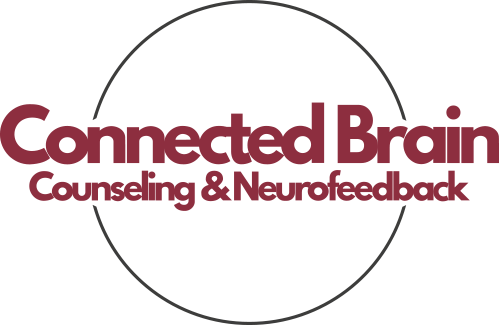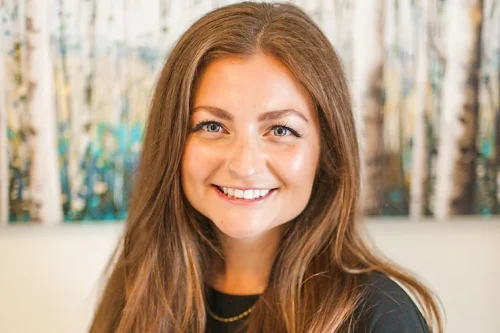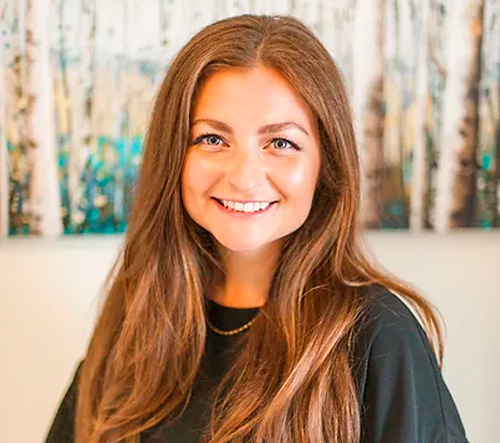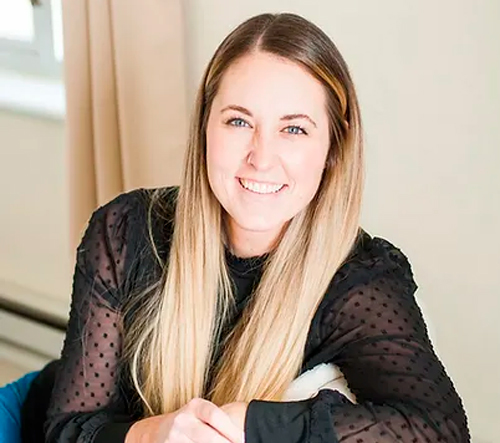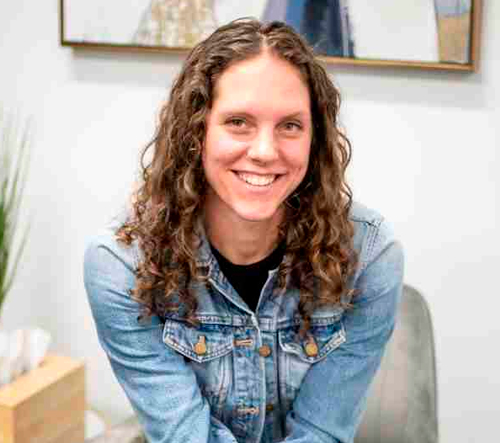Did you know that your therapist often gains just as much insight into their session with you as you may with them?
Meet Brianna, a Licensed Clinical Counselor at Connected Brain Counseling. In our recent interview with her, Brianna talks about how connecting with clients not only improve their ability to feel heard, but her understanding of humanity as well.
Brianna is currently accepting new clients. You can schedule a free consultation to work with her here.
Tell us about what drew you to working in mental health
I was drawn to working in mental health because I saw the vast need of people to be seen, heard, and understood. I’ve experienced the power of this in some of my hardest moments and discovered first-hand that healthy connection heals.
As humans, we have such great capacity for flourishing and freedom, but there are endless things that can get in our way of that. I chose a career in mental health not to save or protect my clients from these things but to help them better understand what’s getting in their way and to walk alongside them as they work towards wholeness. Sometimes, we just need to know that someone is with us and for us on the journey we’re on. What is your favorite part about working in mental health?
Connecting with others in all of our shared humanity is my favorite part of working in this field. Our lives can be exciting, painful, depressing, wonderful, anxiety-producing, funny, infuriating, busy, chaotic, confusing, amongst other things. Being able to connect with clients in these shared human experiences makes the work not only more fulfilling but also more humanizing.
What do you struggle with the most with working in this field?
I really wrestle with the high cost of mental health and the different perspectives surrounding it. There is this delicate balance of wanting to provide quality care at a reasonable rate while also recognizing the overhead and expenses that we have as therapists. Insurance can also pose significant challenges to therapists offering covered care to deserving clients, which can be really difficult to navigate. What drew you to getting trained in neurofeedback?
I’ve always been someone that appreciates science and finds the human body and brain miraculous. I decided to get trained in neurofeedback in order to offer another route towards healing and wholeness for clients.
Many of us don’t realize how dysregulated our nervous systems often are, and neurofeedback seems to provide lasting results for clients and acts as a foundation for further growth. Gaining an understanding of their brain functioning can often help clients experience more self-compassion and reduce feelings of shame, both of which are significant contributors to poor mental health. What type of client do you work best with?
I’ve found that I work best with clients that are eager to learn, open-minded, and willing to look at themselves honestly. While I respect and honor moments of heaviness, grief, and pain in sessions, I tend to connect well with clients that are willing to engage humor in therapy because life can be ironic, comical, and downright weird sometimes.
I enjoy working with and have had the most success helping clients navigate relationship-related issues, whether that be intimate, family, work, or personal relationships. I’ve found that working with couples can be especially rewarding and believe that healthy relationships are foundational for human wellness and flourishing.
Give us a fun fact or two about you!
In my spare time I can often be found with my husband and pup adventuring in the mountains, enjoying a coffee shop or brewery, or hosting a game night with our community of friends.
Before working in mental health I worked as a leasing agent for a company that managed over 150 properties. In a similar way to being a therapist, I found so much joy and satisfaction in helping people understand and achieve the needs and desires they had for their home.
